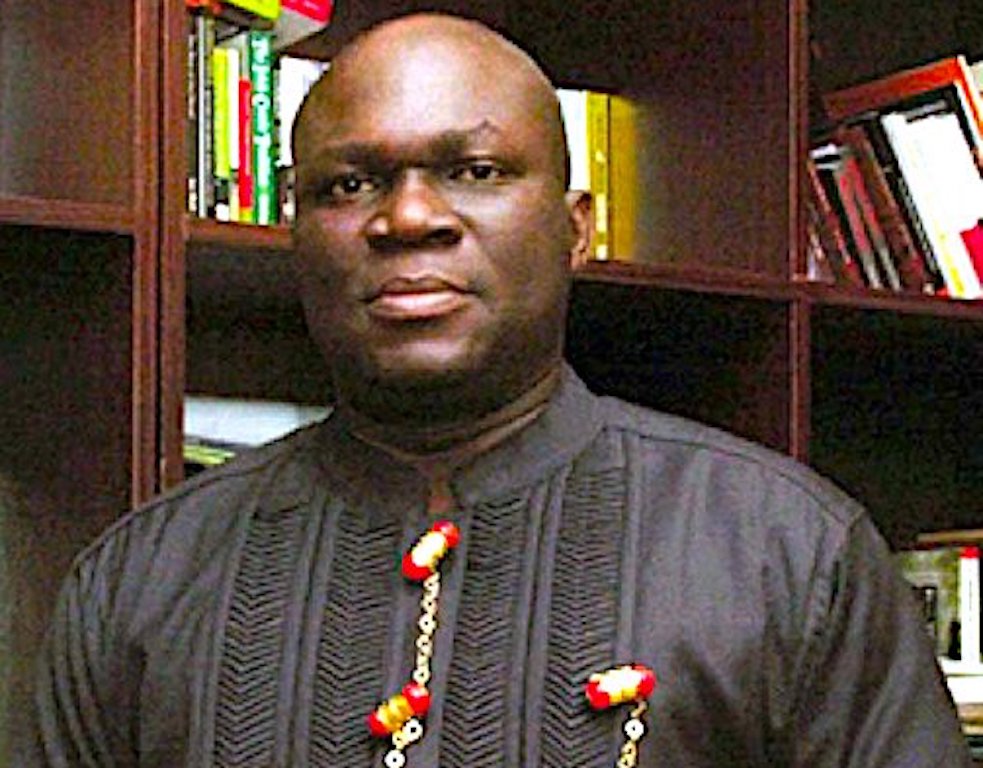Queen, NANS, ASUU and Who Dey Shop?, By Reuben Abati
Yesterday will long go down in history, even for generations yet to be born, as a historic moment in the 21st century, the day Elizabeth II embarked on a journey to the Eternal Kingdom, after 70 years of reign as monarch of Great Britain. and leader of the Commonwealth, grandmother to many around the world and "the rock on which modern Britain was built" in the words of British Prime Minister Liz Truss. I was impressed by the symbolism, the culture, the tradition, the pageantry, the intergenerational links, the grandeur with which the British, attentive to every little detail, made it a tribute to the value of the constitutional monarchy, to national pride, and the history of a people. So much has been said in the past ten days, but now that Elizabeth II has gone to join the Lord, there is much more to say about the lessons and the future, and the rest of us who would share for always a connection with the United Kingdom, at the cultural, historical, diplomatic, binational and individual, polemical levels. Ultimately, what has been shared is the humanity that connects the entire population of the world, and the subtle differences and disregard for a rules-based international order that divides us. Elizabeth II is gone. The Lord is her shepherd…/She has passed beyond the mists that blind us here/Into the new and greater life/From this serene sphere. That she travels well. A new era begins.
On this historic occasion, Nigerian President Muhammadu Buhari was represented by the Vice President, Professor Yemi Osinbajo, and Nigeria's High Commissioner to the United Kingdom, Alhaji Sarafa Isola. Nigeria was not one of those countries that were asked to stay away from funerals: Russia, Belarus, Myanmar, Syria, Venezuela and Taliban-ruled Afghanistan. The Russians complained that their exclusion was "particularly blasphemous". I can't figure out how. The British were determined to make a diplomatic statement and play politics with the Queen's funeral and they did. Some countries were reluctantly allowed to attend through their ambassadors: Iran, Nicaragua and North Korea. China sent its vice president, Wang Qishan. But US President Joe Biden, French President Emmanuel Macron and the Prince of Dubai were given preferential treatment - allowed to travel in their own transport, with the US President traveling to Westminster Abbey for the burial of state in 'The Beast', while others were transported in buses provided by the British hosts.
So to speak, the funeral of Queen Elizabeth II was one of the biggest diplomatic gatherings in decades, the first state funeral in the UK since the death of Sir Winston Churchill in 1965, and the one of the biggest security events. operations everyone has seen for decades: 4,000 military personnel, 10,000 police officers on duty, 142 naval officers at the controls of the gun carriage last used in 1952 for the burial of King George VI, father of Elizabeth II, blocking drone technology, a bank holiday that put the whole of the UK on pause, 4.1 billion people watching across the world, the pump was a clear indication of Elizabeth's majesty II in life and death. The British took the opportunity to announce strength, tradition, seamless institutional capacity and continuity.
The Elizabethan age is a specific reference in the teaching of English history and culture, and worldview, which in literary scholarship has provided a reference for the introduction of students in the humanities to an understanding of the British Renaissance between 1558 and 1603, during the Tudor period. It was the Golden Age: the era of William Shakespeare and his contemporaries, the Spanish Armada (1585 – 1602) and the emergence of royal union with Scotland. As someone who taught Elizabethan literature, especially Shakespeare and his contemporaries, from Shakespeare himself, to Ben Jonson, Thomas Kyd, Christopher Marlowe and John Lyly, to 19th century Anglo-Irish theater , from W. B. Yeats to Lady Gregory, John Millington Synge and Sean O'Casey, I would not be surprised if literary scholars began to explore the constructions of a second Elizabethan age in the 20th and 21st centuries given the extent of the reign of Elizabeth II through culture, science and politics. Such was the scope of the importance of his leadership.
Many Nigerians who physically or virtually attended the Queen's burial or funeral, regardless of their apprehensions as to what moment of truth, atonement and catharsis it may represent on the Empire's legacy and of colonialism, may well be reassured by the fact that Nigeria was not among those countries banned from attending the funeral of the grandmother of the world whose burial was even celebrated yesterday in Cameron's countryside, with a service thanksgiving card! Vice President Yemi Osinbajo represented President Muhammadu Buhari. But there is a problem here that I would like to vomit, thinking...

Yesterday will long go down in history, even for generations yet to be born, as a historic moment in the 21st century, the day Elizabeth II embarked on a journey to the Eternal Kingdom, after 70 years of reign as monarch of Great Britain. and leader of the Commonwealth, grandmother to many around the world and "the rock on which modern Britain was built" in the words of British Prime Minister Liz Truss. I was impressed by the symbolism, the culture, the tradition, the pageantry, the intergenerational links, the grandeur with which the British, attentive to every little detail, made it a tribute to the value of the constitutional monarchy, to national pride, and the history of a people. So much has been said in the past ten days, but now that Elizabeth II has gone to join the Lord, there is much more to say about the lessons and the future, and the rest of us who would share for always a connection with the United Kingdom, at the cultural, historical, diplomatic, binational and individual, polemical levels. Ultimately, what has been shared is the humanity that connects the entire population of the world, and the subtle differences and disregard for a rules-based international order that divides us. Elizabeth II is gone. The Lord is her shepherd…/She has passed beyond the mists that blind us here/Into the new and greater life/From this serene sphere. That she travels well. A new era begins.
On this historic occasion, Nigerian President Muhammadu Buhari was represented by the Vice President, Professor Yemi Osinbajo, and Nigeria's High Commissioner to the United Kingdom, Alhaji Sarafa Isola. Nigeria was not one of those countries that were asked to stay away from funerals: Russia, Belarus, Myanmar, Syria, Venezuela and Taliban-ruled Afghanistan. The Russians complained that their exclusion was "particularly blasphemous". I can't figure out how. The British were determined to make a diplomatic statement and play politics with the Queen's funeral and they did. Some countries were reluctantly allowed to attend through their ambassadors: Iran, Nicaragua and North Korea. China sent its vice president, Wang Qishan. But US President Joe Biden, French President Emmanuel Macron and the Prince of Dubai were given preferential treatment - allowed to travel in their own transport, with the US President traveling to Westminster Abbey for the burial of state in 'The Beast', while others were transported in buses provided by the British hosts.
So to speak, the funeral of Queen Elizabeth II was one of the biggest diplomatic gatherings in decades, the first state funeral in the UK since the death of Sir Winston Churchill in 1965, and the one of the biggest security events. operations everyone has seen for decades: 4,000 military personnel, 10,000 police officers on duty, 142 naval officers at the controls of the gun carriage last used in 1952 for the burial of King George VI, father of Elizabeth II, blocking drone technology, a bank holiday that put the whole of the UK on pause, 4.1 billion people watching across the world, the pump was a clear indication of Elizabeth's majesty II in life and death. The British took the opportunity to announce strength, tradition, seamless institutional capacity and continuity.
The Elizabethan age is a specific reference in the teaching of English history and culture, and worldview, which in literary scholarship has provided a reference for the introduction of students in the humanities to an understanding of the British Renaissance between 1558 and 1603, during the Tudor period. It was the Golden Age: the era of William Shakespeare and his contemporaries, the Spanish Armada (1585 – 1602) and the emergence of royal union with Scotland. As someone who taught Elizabethan literature, especially Shakespeare and his contemporaries, from Shakespeare himself, to Ben Jonson, Thomas Kyd, Christopher Marlowe and John Lyly, to 19th century Anglo-Irish theater , from W. B. Yeats to Lady Gregory, John Millington Synge and Sean O'Casey, I would not be surprised if literary scholars began to explore the constructions of a second Elizabethan age in the 20th and 21st centuries given the extent of the reign of Elizabeth II through culture, science and politics. Such was the scope of the importance of his leadership.
Many Nigerians who physically or virtually attended the Queen's burial or funeral, regardless of their apprehensions as to what moment of truth, atonement and catharsis it may represent on the Empire's legacy and of colonialism, may well be reassured by the fact that Nigeria was not among those countries banned from attending the funeral of the grandmother of the world whose burial was even celebrated yesterday in Cameron's countryside, with a service thanksgiving card! Vice President Yemi Osinbajo represented President Muhammadu Buhari. But there is a problem here that I would like to vomit, thinking...
What's Your Reaction?






















